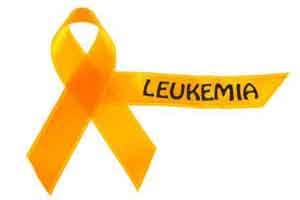- Home
- Editorial
- News
- Practice Guidelines
- Anesthesiology Guidelines
- Cancer Guidelines
- Cardiac Sciences Guidelines
- Critical Care Guidelines
- Dentistry Guidelines
- Dermatology Guidelines
- Diabetes and Endo Guidelines
- Diagnostics Guidelines
- ENT Guidelines
- Featured Practice Guidelines
- Gastroenterology Guidelines
- Geriatrics Guidelines
- Medicine Guidelines
- Nephrology Guidelines
- Neurosciences Guidelines
- Obs and Gynae Guidelines
- Ophthalmology Guidelines
- Orthopaedics Guidelines
- Paediatrics Guidelines
- Psychiatry Guidelines
- Pulmonology Guidelines
- Radiology Guidelines
- Surgery Guidelines
- Urology Guidelines
New low cost method may provide hope for leukemia patients

London : Swedish scientists in a breakthrough research have found a highly cost-effective technology which can examine individual cells in leukemia and can eventually transform treatment for patients suffering from the cancer.
The new method helped researchers to examine individual tumour cells in patients with chronic lymphocytic leukemia (CLL) a cancer of blood-forming tissues, hindering the body's ability to fight infection.
The finding showed that leukemia tumours are comprised of cells having entirely different gene expressions.
"The study found that CLL cells do not consist of a single cell type, but of a number of sub-clones that exhibit entirely different gene expression," said Joakim Lundeberg, Professor at KTH Royal Institute of Technology in Stockholm, Sweden.
Typically, RNA sequencing will provide information about what RNA molecules are present in a biological sample, but not where or in which cells they are active, the researcher said.
"With this new, highly cost-effective technology, we can now get a whole new view of this complexity within the blood cancer sample. Molecular resolution of single cells is likely to become a more widely-used therapy option," Lundeberg observed.
The method provides analysis of all mRNA molecules in individual cells by binding a location tag to the molecules.
Individual cells are sorted on a specially-made glass surface and using analysis of RNA molecules with next-generation sequencing, one can tell which genes are active.
"With the new method we can study thousands of cells in a day," Lundeberg said, in the paper reported in the journal Nature Communications.

Disclaimer: This site is primarily intended for healthcare professionals. Any content/information on this website does not replace the advice of medical and/or health professionals and should not be construed as medical/diagnostic advice/endorsement or prescription. Use of this site is subject to our terms of use, privacy policy, advertisement policy. © 2020 Minerva Medical Treatment Pvt Ltd